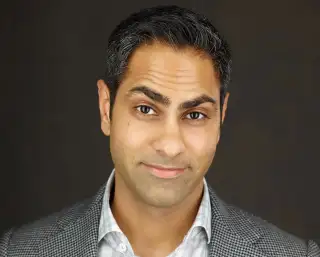The Mistake That Cost Me $100,000

Ramit Sethi’s career took off in 2009 with the release of his New York Times bestselling book, I Will Teach You to Be Rich. Since then, the man Fortune magazine called the "new finance guru on the block" has built an impressive online community and business that engages with more than half a million monthly readers. On his website, Sethi covers psychology, personal finance, careers, and entrepreneurship. He also teaches courses on how to earn more and launch a business.
But his rise to success didn't happen without a few bumps in the road, both personally and professionally. He spoke candidly with me about these failures, and the expensive lessons he learned, on my daily podcast, So Money.
On the Value of Failure
I think failures are very consistent. If you’re trying to do new things, you’re going to fail a lot. In fact, I have a tag in my Gmail account called 'failures,' and my belief is if I’m not adding something to the folder every so often, then I’m not trying hard enough.
His Earliest Financial Fail
The first financial failure that I can remember was the first scholarship check I got. I believe it was $2,000 or $5,000, and they wrote that check directly to me. That’s a lot of money for a 17-year old and, you know, it’s 1999, 2000, the stock market is on fire. What do I do? I turn around and take that money and invest it straight in the stock market. I lost half of it almost overnight. I still remember some of the stocks I invested in: Excite at Home, bankrupt! JDSU, bankrupt! I mean, first of all, investing in stocks isn’t even what most individual investors should do. So what the hell was I doing? I lost that money, and I said, 'Alright, I better learn how money works.'
How He Lost 100 Grand
Just two years ago, we made a bad technology decision for my business and it cost us $100,000. That was the price of the contract. We didn’t even use the software once, but we had already signed the contract. I said—I tried to be nice—'Hey guys, can you just refund our money?' They’re like, 'Sorry, no.' And that was a $100,000 mistake.
I try to minimize mistakes, but I also recognize that as you grow and as you’re trying new things, sometimes mistakes are inevitable. That’s okay, as long as you’re not bringing the whole company or bringing your own personal fortune down with it.
What He Learned
There was nobody to blame but myself. I had put someone in charge of it. I hadn’t done correct oversight of his work, and, of course, I fired him immediately. But there was no one else to own up to it except me, and I had to laugh because what else are you going to do? I signed the contract. The company is technically right. Of course, it would have been nice for them to give me my money back but it’s business. And I said, 'Guess what, I’ll never make that mistake again.' I think my friend said it very well. He said, 'I don’t mind making a mistake once, but I will never make it twice.'
Every day, Money contributing editor Farnoosh Torabi interviews entrepreneurs, authors, and financial luminaries about their money philosophies, successes, failures, and habits for her podcast, So Money, which is a “New and Noteworthy” podcast on iTunes.